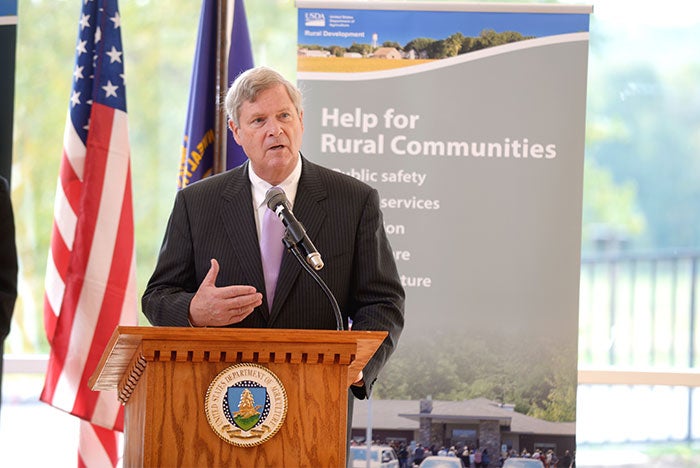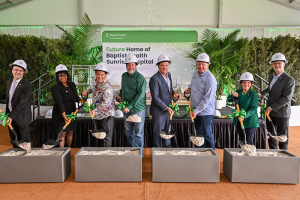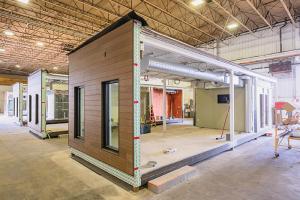USDA funds go toward health care construction in rural areas

Tom Vilsack, USDA Secretary of Agriculture, announces funds to help develop critical services in rural communities.
Rural Local Initiatives Support Corp. (LISC) is awarding $20 million in financing to build up critical health care, child care and education services in low-income rural areas. The funds were given by the Department of Agriculture (USDA) and will be funneled through Rural LISC’s Community Facilities loan program to support the construction costs, equipment purchases and related project expenses at health care centers, clinics, nursing homes, assisted-living facilities and other community-based centers.
Rural LISC will use the funds to make low-interest loans so that nonprofits, services providers and municipal agencies can develop facilities that improve the quality of life in their communities. The program will home in on areas with fewer than 20,000 residents facing high rates of persistent poverty.
"Too many rural communities struggle to attract the basic services that urban residents are long-accustomed to having in their cities and towns," says Suzanne Anarde, Rural LISC program vice president. "These new USDA resources will help build the rural infrastructure that is critical to the well-being of millions of people across the country."
Previous projects funded by Rural LISC include the $1.4 million Coastal Family Health Center in D’lberville, Miss., which was built to improve health care in the Gulf Coast following Hurricane Katrina. The area was decimated by the 2005 storm, and Rural LISC provided an acquisition loan for the purchase of the property for the health center and predevelopment grants for much of the planning. Anarde says the additional funding will help it to streamline financing for similar projects.
"Part of the reason the USDA is partnering with Rural LISC is that we have a great deal of experience doing this kind of work and have close connections to local partners ready to quickly put this capital to use," Anarde notes. "We have invested in these types of facilities for decades, and we know how to help get promising projects off the ground, even in our country's most troubled communities."
Anarde says the group has not distributed any loans from this most recent cycle yet, but it has a robust pipeline of projects. There is also a possibility, she says, that some funds could be distributed for post-disaster rebuilding in communities affected by Hurricane Matthew.
"The assessment of damages and rebuilding is ongoing, but as shown by [our previous work,] post-disaster rebuilding is a great use of these funds," Anarde says.




